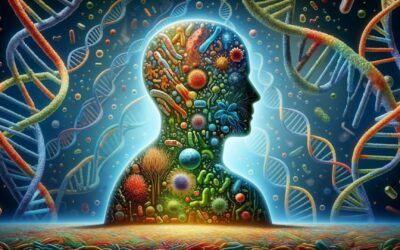Introduction
The rapid advancements in artificial intelligence (AI) have transformed our world in countless ways, revolutionizing industries and reshaping the way we live, work, and communicate. As AI systems become more sophisticated and capable of learning, the potential for a significant impact on job markets and the future of work becomes increasingly apparent. We will delve into the key aspects of AI’s influence on the job market, exploring the potential for job displacement, the creation of new job opportunities, and the need for a workforce skilled in AI and related technologies.
The Key Aspects of AI’s Influence on The Job Market
1. AI-driven job displacement
One of the most immediate concerns regarding AI’s impact on the job market is the potential for job displacement. As AI systems become more advanced and capable of performing tasks previously reserved for humans, many worry that this could lead to widespread unemployment. Jobs that require repetitive, routine tasks are particularly vulnerable to automation, including roles in manufacturing, data entry, and customer service.
However, it’s essential to recognize that this displacement is not necessarily a one-way street. Just as the Industrial Revolution led to the creation of new types of jobs and industries, so too will the AI Revolution reshape the job market in ways we cannot yet fully anticipate.
2. Creation of new job opportunities
While AI may replace some jobs, it’s also expected to create new opportunities in various fields. Some of these new jobs may include AI developers, AI ethicists, data scientists, and machine learning engineers. Additionally, AI’s integration into sectors like healthcare, finance, and education is expected to generate roles that blend human expertise with AI capabilities.
For instance, in healthcare, AI-powered systems can analyze vast amounts of data to improve diagnostics and treatment plans. This development is likely to result in an increased demand for medical professionals who can interpret and apply these AI-generated insights. Similarly, in finance, AI-based tools will require human oversight and input, necessitating the need for financial experts who understand AI’s implications on financial markets.
3. Reskilling and upskilling the workforce
To adapt to the changing job market, it’s crucial that individuals and organizations invest in reskilling and upskilling. The workforce must be equipped with the necessary skills and knowledge to navigate an AI-driven world. This may involve learning new technical skills, such as programming languages or data analysis techniques, as well as developing soft skills like adaptability, critical thinking, and creativity.
Governments, educational institutions, and businesses all have a role to play in facilitating this shift. They should collaborate to develop comprehensive training programs, establish lifelong learning opportunities, and ensure access to quality education for all.
4. The evolving nature of work
The integration of AI into the workplace will undoubtedly change the nature of work itself. As AI takes over routine and repetitive tasks, human workers will have the opportunity to focus on more complex, creative, and strategic tasks that require higher-order thinking and problem-solving skills. This shift is likely to lead to a more rewarding and fulfilling work experience for many.
Moreover, AI can also foster more flexible and agile work arrangements. As AI systems become increasingly proficient at managing tasks and optimizing workflows, they can enable remote and flexible working structures, which can lead to increased productivity and job satisfaction.
5. Ensuring an inclusive and equitable AI-driven job market
One of the most significant challenges in transitioning to an AI-driven job market is ensuring that the benefits are distributed equitably. To avoid exacerbating existing social and economic inequalities, it is crucial to promote inclusivity and equal access to educational and professional opportunities.
Governments and institutions should prioritize policies that aim to reduce the digital divide and ensure that individuals from all backgrounds have the resources and support needed to thrive in the AI-driven economy. This may include investing in digital infrastructure, offering affordable internet access, and providing targeted training programs for underrepresented groups.
Conclusion
The impact of AI on job markets and the future of work is a multifaceted and complex issue. While AI has the potential to displace certain jobs, it also holds the promise of creating new opportunities and improving the quality of work for many. To navigate this transition successfully, it is crucial for individuals, organizations, and governments to collaborate and adapt. By investing in education, reskilling, and upskilling initiatives, we can equip the workforce with the necessary skills to thrive in an AI-driven world. Furthermore, by fostering inclusive and equitable access to these opportunities, we can ensure that the benefits of AI are shared widely and that no one is left behind.
As we continue to embrace AI and its potential to reshape our world, we must remain vigilant and proactive in addressing the challenges that come with this technological revolution. By fostering a culture of innovation, collaboration, and adaptability, we can harness the power of AI to create a more prosperous, equitable, and fulfilling future of work for all.
Keywords:
- AI: Artificial Intelligence, the development of computer systems that can perform tasks that would typically require human intelligence, such as speech recognition, decision-making, and language translation.
- Job Displacement: The loss of jobs due to the introduction of new technologies or changes in the economy, resulting in a reduced demand for certain types of labor.
- New Job Opportunities: The creation of new types of jobs in response to changes in the economy, technology, or other factors.
- Upskilling: The process of acquiring new skills or knowledge to improve one’s job performance or increase opportunities for career advancement.
- Inclusivity: The practice of ensuring that all individuals have access to the same opportunities and resources, regardless of their background or identity.
- Automation: The use of machines, computers, or other technologies to perform tasks that would typically require human labor.
- Data Science: The study of data through various statistical and computational methods, with the goal of extracting insights and knowledge from large datasets.
- Machine Learning: A subset of AI that involves the development of algorithms and statistical models that allow computer systems to learn and improve from experience, without being explicitly programmed.
- Soft Skills: Personal attributes and traits that enable individuals to interact effectively with others, such as communication, problem-solving, and adaptability.
- Digital Divide: The gap between those who have access to modern technology and those who do not, often due to socioeconomic or geographic factors.
- Lifelong Learning: The practice of continually acquiring new knowledge and skills throughout one’s life, with the goal of improving personal and professional growth.












0 Comments